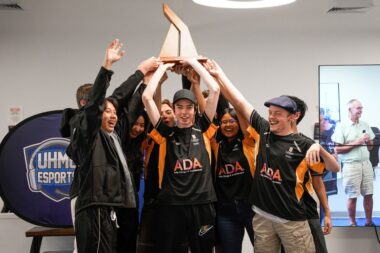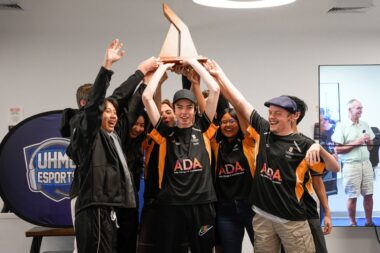Social work and teaching students are carrying a burden of up to $21,000 to complete mandatory internships, according to a fresh analysis by Unions NSW that warns Australia cannot attract the workers it needs in these critical industries without reform.
The peak body has calculated the number of hours students must spend on vocational training against the national minimum wage. It has revealed a shocking financial cost that is burning students out before they begin their careers and costing Australia essential workers.
It comes as UNSW social work students plan a protest this Wednesday, May 31 to demand that peak social work and teaching bodies ban the use of unpaid internships.
“My rent was recently raised by $160 a fortnight. This has put me in rent insecurity, financial distress and sitting well below the poverty line for my placement,” third-year UNSW social work student and Students Against Placement Poverty spokesperson Isaac Wattenberg said.
“This story is replicated again and again among my fellow students. It is not sustainable.”
Social work students must complete 1000 hours of vocational training. Undergraduate teaching students must complete at least 80 days in the classroom.
“There are about 15,000 social worker jobs on Seek right now and more than 18,000 for teachers. We desperately need people in these key industries,” Unions NSW Secretary Mark Morey said.
“At the same time, we’re asking the next generation of workers to forfeit up to $20,000. It is utterly perverse.”
Mr Wattenberg is doing his placement with Unions NSW, which wants to pay him but is restricted from doing so.
This has forced him to rely on his partner’s disability pension, as well as his own youth allowance payments, and he is among students walking off his placement to demand fair pay for real work.
“They tried to pay me, but I could not accept the money. If I did, it would be an employment contract, not a vocational placement, and the hours would not go towards my accreditation,” he said.
Mr Morey labelled the situation perverse. He pointed to an Australian Council of Heads of Schools of Social Work survey of 700 students, of whom nearly 80 per cent reported adverse mental health effects from the financial pressure.
“We explicitly tried to pay Isaac and we definitely want to pay Isaac, but the current system does not allow it. It’s perverse,” he said.
“Mandatory unpaid internships don’t just hurt students, who feel burnt out before they even start.”
He said that paying each student the national minimum wage for the duration of their placements would attract more students, reduce burnout and boost retention.
A Unions NSW analysis of Australian Bureau of Statistics data shows a worrying drop in the completion rates for teaching degrees. In the six-year period ending 2011, the completion rate was 70 per cent. But the six-year completion rate for 2021 had fallen to 53 per cent.
The completion rate for social work students fell by eight per cent over the same time frame, from 58 per cent between 2005-11 to 50 per cent between 2016-21.
“The essential worker shortage crisis starts with unpaid internships,” Mr Morey said.
Additional information:
The Students Against Placement Poverty protest will run from 8am to 12pm as part of a large NTEU strike at UNSW on May 31.
Students Against Placement Poverty will host a launch event on Wednesday June 7 at 6pm at Sydney University’s John Woolley Building. Speakers include Senator Mehreen Faruqi, SAPP, co-founder Isaac Wattenberg. The campaign can be contacted at [email protected]
Contact details:
Georgie Moore
Horton Advisory|CBR
0477 779 928




